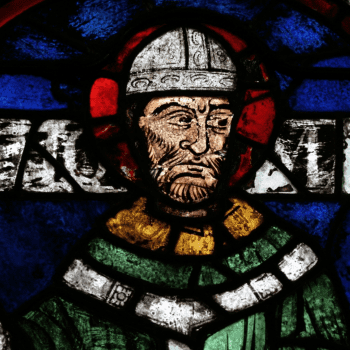A Christian is one who has repentant faith in Jesus Christ as his or her Lord and Savior. Christians are given new life (Jesus says they are born again) and their purpose is to glorify God. The word Christian comes from the Greek word, Christos, meaning Christ, and refers to a follower of Christ. The word “Christian” is mentioned three times in the New Testament to describe new believers (Acts 11:26; 26:28 and 1 Pet. 4:16).
Christianity comes from the teachings of the Bible. The words of the Bible are the words of God speaking to us through men. They are completely truthful (Ps. 119:160; Prov. 30:5; Titus 1:2; Heb. 6:18) and are to be read with reverence and awe (Deut. 28:58; Ps. 119: 74; Isa. 66:2).
The Bible cannot be added to, taken away from, or made to say something that it does not say. (Rev. 22:18, 19; Deut. 4:2; 12:32; Prov. 30:6) And “All Scripture is God-breathed and is useful for teaching, rebuking, correcting and training in righteousness, so that the servant of God may be thoroughly equipped for every good work.” (2 Tim. 3:16-17)
Through hearing God’s word we gain eternal life (John 6:68; 1 Pet. 1:23) and have the basis for right moral living.
It’s important to understand that just because some people may claim to be Christians does not mean that they are. There are nominal Christians and nominal churches, meaning they are “Christian in name only,” or CHINOs; they fall into several categories.
First, they identify as “Christian” for census and regulatory purposes on documents for marriage, baptism or funerals.
Second, some attend church services and follow cultural traditions. Going to church is a rote practice, similar to going to work or “going through the motions” of life. They may affirm ancient creeds, but express having no understanding of their meaning. They might also even be willing to die for the idea of Christianity, but their belief exists apart from personally knowing Jesus.
Third, some CHINOs have been identified as members of cults by well-known evangelical leaders based on the teachings of scripture (ie. Walter Martin, John Gersner, John MacArthur and John Piper). The leaders of these cults claim to have additional revelation to the Bible and institute dependent communities that make leaving them exceedingly difficult. The “Church” of Scientology, Jehovah’s Witnesses, and the “Church” of the Latter Day Saints of Jesus Christ have all been identified in this category. They all openly reject the teachings of the Bible as the sole word of God and still use Christian terminology to define their practices.
Finally, there are heretical and apostate CHINOs who advocate the opposite of what the Bible teaches, openly reject what it teaches, and boldly blaspheme God. Homosexual and lesbian priests, leaders, and seminaries that advocate sexual deviancy as biblically acceptable fall into this category. They live in open rebellion against God yet still self-identify as Christians.
A genuine Christian believes in, loves, trusts, obeys, and knows on a personal level their savior, Jesus Christ. They believe Jesus is who he says he is: the only Son of God, fully man and fully God. Jesus shares in the eternal co-existing relational nature of God: as the Son, with God the Father and God the Holy Spirit. Only through Jesus Christ can one be saved, and know God’s unconditional, immeasurable love and unbending commitment to redemption, healing, and joy. (John 10:29, 30, 8:24-27, 5:18, 3:35, 15:26, 19:10-11; Luke 2:49, 11:13; 1 John 4; 1 Pet. 1; Matt. 26:39)
Genuine believers are convicted that Jesus is not only the Word of God but also that he is the key to understanding God’s revelation and divine authorship of the Bible. (John 1, 5, 8; Romans; Prov. 30:5-6; 2 Tim. 3:15-17; 2 Pet. 1:20-21)
Birth, baptism, ethnicity, and culture do not a Christian make. One becomes a Christian only through faith in Jesus whose grace and imputed righteousness personally transforms believers relationally to him (and others). Genuine conversion leads to repentance and obedience.
Jesus said those who do not keep his commandments do not know him or love him. Those who say they know or love him and don’t obey him are self-deceived. (1 John 2:3-6)
Keep in mind that Christians aren’t perfect. There will always be the need for repentant lifestyle. It’s astounding to consider that David, king of Israel and precursor to Christ, was a murderer, adulterer, and a sometimes-bad political leader. But his sins were erased because of his contrite repentant spirit, earning him the title, “a man after God’s own heart.” (1 Sam. 13:14; Acts 13:22)
Just because God commands obedience and his admonitions are clearly written in the Bible does not mean that genuine Christians are without sin and cannot fail miserably. They can be hypocritical, judgmental, and legalistic. Christians can struggle with lying or cheating or addiction. But the mark of a Christian is earnest confession of sin to Jesus, asking for forgiveness, turning away from this sin, and desiring to obey and follow Jesus.
Yet even still, the ultimate standard for truth is not based on a person’s behavior but in whom their faith and salvation lies: Jesus Christ.












